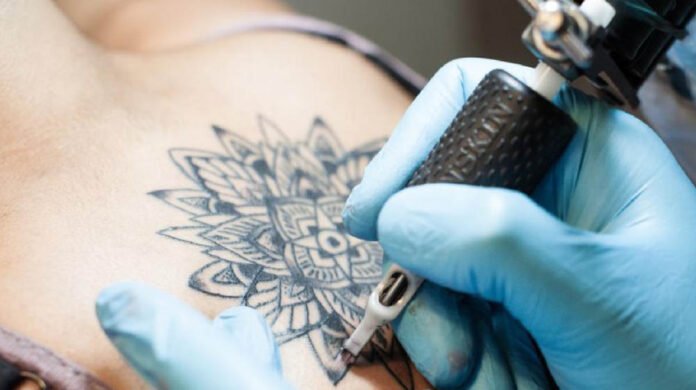According to the officials, the European Union has banned tattoo ink, and permanent makeup containing chemicals feared of causing cancer or other health issues came into effect on Tuesday.
The ban covers hazardous substances such as azo dyes, carcinogenic aromatic amines, polycyclic aromatic hydrocarbons (PAHs), metal and methanol.
The European Commission further said, “The restrictions cover carcinogenic, mutagenic and reprotoxic substances, chemicals forbidden in skin sensitisers, cosmetics, skin and eye irritants, metal impurities, several colours and aromatic amines.”
According to Sonya Gospodinova, a commission spokesperson, “the protection of the European citizens public health is our all-time priority, and harmful chemicals in tattoo ink can represent such a concern.”
Around seven (7) European countries have already implemented the ban.
The directive, which was agreed by all the EU member states a year and a half ago, now makes it applicable across the 27-nation bloc, including imports from outside the EU.
Another spokesman of the commission, Eric Mamer, claims that safe, optional chemicals are also available for use in most pigments and colourations.
He further added, “Where there are no options available, there is a grace time period for the industries to rethink about the idea to find alternative solutions.”
According to the European Chemicals Agency (ECA), “tattoo inks and permanent makeup comprises of several chemicals mixture that results in causing “skin allergies and other more serious health issues, such as genetic mutations and cancer.”
Notably, ink pigments can seep into the body via the skin, affecting organs such as lymph nodes and the liver. Further, the laser treatment to erase tattoos can break the substances into tiny particles that pass into the body.
According to the reports, “chemicals used in the tattoo inks and makeup can stay in the body for life, and there may also be a possibility for long-term exposure to potentially toxic components.”
There are currently two main substances for which no substitute is available, including synthetic beta-copper phthalocyanine dyes typically used in tattoos.
